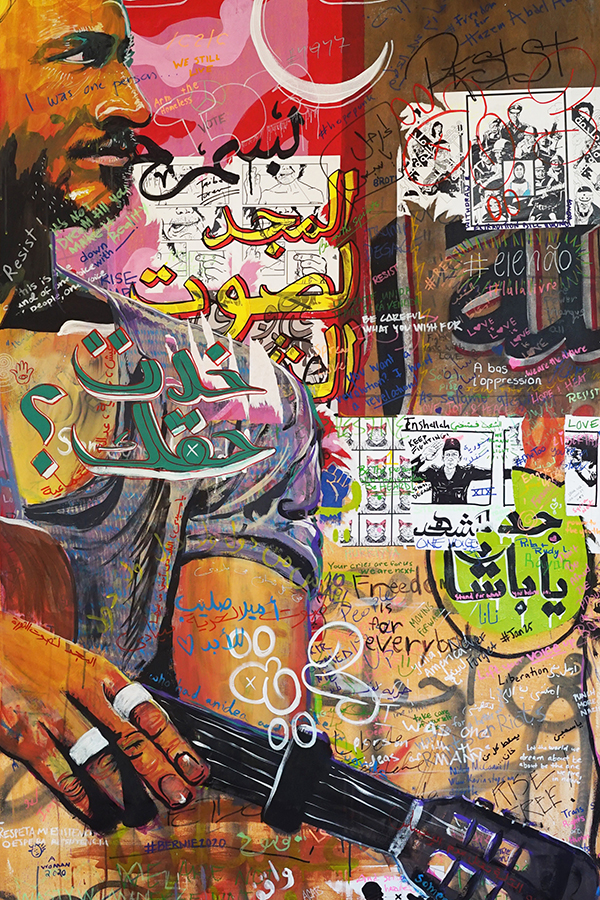Topic Director: Huda J. Fakhreddine
Associate Professor of Arabic Literature
Department of Near Eastern Languages & Civilizations
Revolutions are the tipping points in the cycle of calm and chaos, order and unrest, stability and change. A revolution is a break with the old and the established and a yearning for the potential that lies in the new and unsettled. Revolutions punctuate human history.
If revolutions are movements toward something yet unknown and still in the process of becoming, institutions are projects which have fulfilled or exhausted their potential. Institutions are finished projects which resist change. They sustain themselves by suppressing and coercing the emergence of new potential. How then do we account for human experience when viewed as an alternation between project and institution? How does this alternation contribute to the accumulation and production of knowledge?
From biting into a forbidding apple to stealing fire from the gods, from sailing out to spread a new alphabet in the world to inventing the printing press, from announcing the earth as round and in motion to landing a rocket on the moon, we always understand history, real or imagined, as a series of big pauses that change the course of time. The emergence of new literary genres, the declaration of independent nation-states, advancements in travel and communications, developments in educational systems and strides in civic life, human rights, and gender equality, are all evolutions that continue to set new horizons and compel human life towards them. How does an idea transform into a project that ushers in a new order: in literature, economy, sociology, technology, education, politics, art, and so on? How do revolutions in different areas of human experience trigger and propel each other?
Beyond dramatic historical or communal events, the idea of revolution is also operative on an intimate personal level. It motivates or restrains journeys of growth or self-discovery. Revolution is generative to thinking about various forms of self-expression such as dance, music, installation art, and of course most pervasive and evident, language. How do individual practitioners, artists, or thinkers intervene in their traditions? How do they participate in or respond to or reject larger conversations across time and space? And what are the consequences of their contributions when perceived or presented as revolutionary? What is the aesthetic of revolutionary work or writing and how does it differ from work that doesn’t position itself as such?
Revolution is also a word. Thinking of revolution as language and language as revolution, participants are invited to explore the connection between discourse and reality? How does our experience of a language or multiple languages change the world?
Beyond the human, nature itself revolts, revolves, and evolves. The non-human and animal world is governed by cycles and systems which come in and out of sync and are subject to turns and disruptions. Ecosystems and natural communities are similarly products of patterns and interruptions and experience their own revolutions. Conversely, human systems of economy and society have an indelible mark on nature and its cycles. Revolution is an apt framework within which to think of human interventions in nature both, spatially and temporally. In this vein, space sciences, technology, and ecological initiatives and impact can be studied as forms of instigating change or commanding control. What are the consequences of such interventions and what is the aftermath of their failures?
Although we tend to think of revolutions as sudden, radical, and forward-looking, the term carries within itself the need to account and look back, a return and a reconfiguration. Revolution is therefore a disruption necessarily followed by a taking of account and a re-establishing of another order. By that, revolutions carry within them an intimate investment in the very things they bring down or destroy. A revolution is thus a critical intervention, a reading or rereading of some sorts, a reassigning of agency, and a reconfiguring of margin and center.
In its research and public programming, the Wolf Humanities Center will host a wide-ranging conversation on revolution in all these fields and others. We invite scholars, students, and members of the public to join us for a year of revolution.
Huda J. Fakhreddine, Topic Director, Wolf Humanities Center
Jamal J. Elias, Director, Wolf Humanities Center
June 2022



